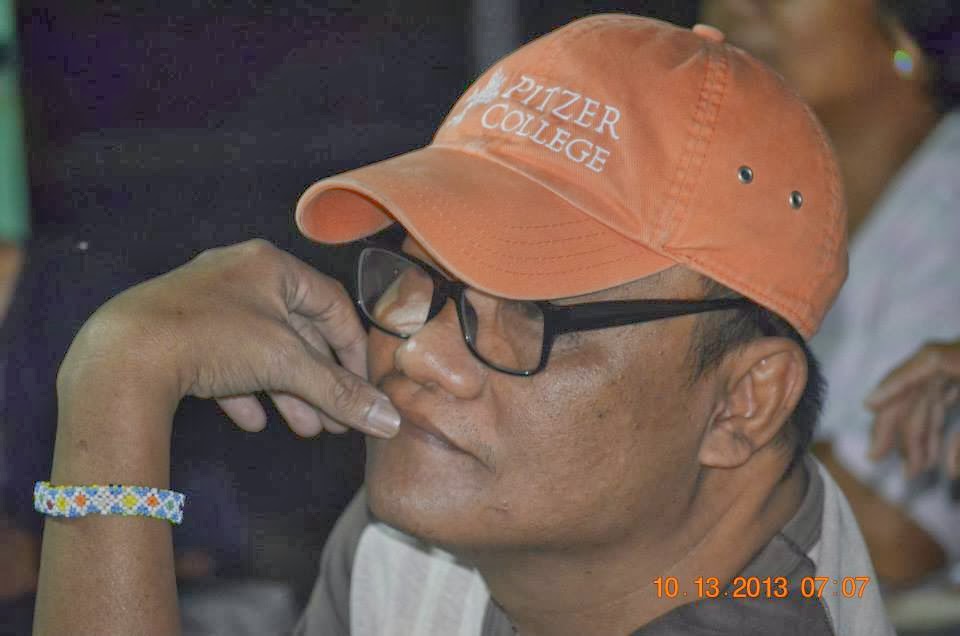
I just came from the airport from an out-of-town official business trip. Around 170 delegates from all over the Philippines gathered at Taal Vista Hotel in Tagaytay City last July 21 to 23, 2010 for the Parish Pastoral Council for Responsible Voting (PPCRV) 2010 Post Election National Conference and I am one of the participants. Ms. Ana de Villa –Singson, PPCRV’s National Media and Communication’s Director, presented the PPCRV 2010 Election Report divided into following sub-topics : PPCRV : its history, vision and mission; the report also emphasized our mandates during the last election including the results of our Voter’s Education, Poll Watching and the conduct of Unofficial Count including the Command Center Operations. The report also covers a review of PPCRV’s strengths, weaknesses, opportunities and threats. The report was indeed comprehensive. And everything in the hotel is cool. From amenities, furnitures, scenery, food, etc. Including those neatly dressed young ladies moving around the hall watching and assisting us.
Towards the end of her presentation, Ms. Singson informed us that the PPCRV was awarded a citation by former President Gloria Macapagal-Arroyo for its “invaluable contribution to the conduct of the national elections of May 10, 2010, which represented a historic milestone in being the first automated election as well as outstanding exercise of popular democracy and an inspiring testament to the sovereignty of the Filipino people..” The presidential citation was given on the occasion of the 112th Anniversary of the Declaration of the Independence of the Philippines. A waiter suddenly offered me something to drink and I politely told him, “No. Thanks..”
The experience was best described in the opening part of our Conference Statement : “ with the scenic Taal Lake locking in dew-dressed embrace Taal Volcano as our backdrop, we listened to each other recount our experiences… And we take pride in having been a vital part of it. A part that was wrought with crosses, but also with many little triumph."
What’s in store now for PPCRV? Indeed we saw the need to identify key issues for us to focus on as the bases of our updating and our new thrusts and initiatives. Based on our Conference Statement, these key issues would allow PPCRV to be self-sustaining in its operational and financial concerns on the local and national levels; promote with “new fervor, new methods and new expressions” continuous education through new post election modules on political evangelization; integrate security of PPCRV volunteers in election work plan/roadmap; establish a election complaint system inclusive of protocols and sites; continue enhancing the technology skills and readiness of local units through basic training on AES-related IT, with access to basic pertinent equipment; and engage the youth aggressively in PPCRV’s political and electoral ministry.
In the report a mentioned a while ago, PPCRV National Chairperson, Ambassador Henrietta T. de Villa has this to say : “(I am ) Happy that our elected 15th President of the Republic of the Philippines rekindled our hope with his pronouncement : dito magwawakas ang pamunuang manhid sa hinaing ng taumbayan… kung saan kayo at ang pangulo ay magkasundo sa pagbabago… Happy especially that our new President in his inaugural address unequivocally proclaimed : Kayo ang boss ko. Thereby restoring anew the true meaning of democracy which is the rule of the people. The PPCRV is impelled by this will start designing simple and easy to put into practice modules on responsible voting and responsible citizenship, especially on how the citizens can think, speak and act like true bosses, marangal na anak ng Diyos, mabait sa kapwa, at mabuting mamamayan..”
I cannot help but feel sad because these words best describe a Filipino-Christian "heartist" who passed away that very day when we at PPCRV are having our conference In Tagaytay. The one who brought Christ’s face not only in his work but in the hearts of its lookers and the society in general. Not unlike the PPCRV.
Go with the Lord, Joey Velasco and keep the fire on our faith, PPCRV…
------
(Photo : Painting entitled "Lingkod" softlinked fro www.joeyvelasco.net)









